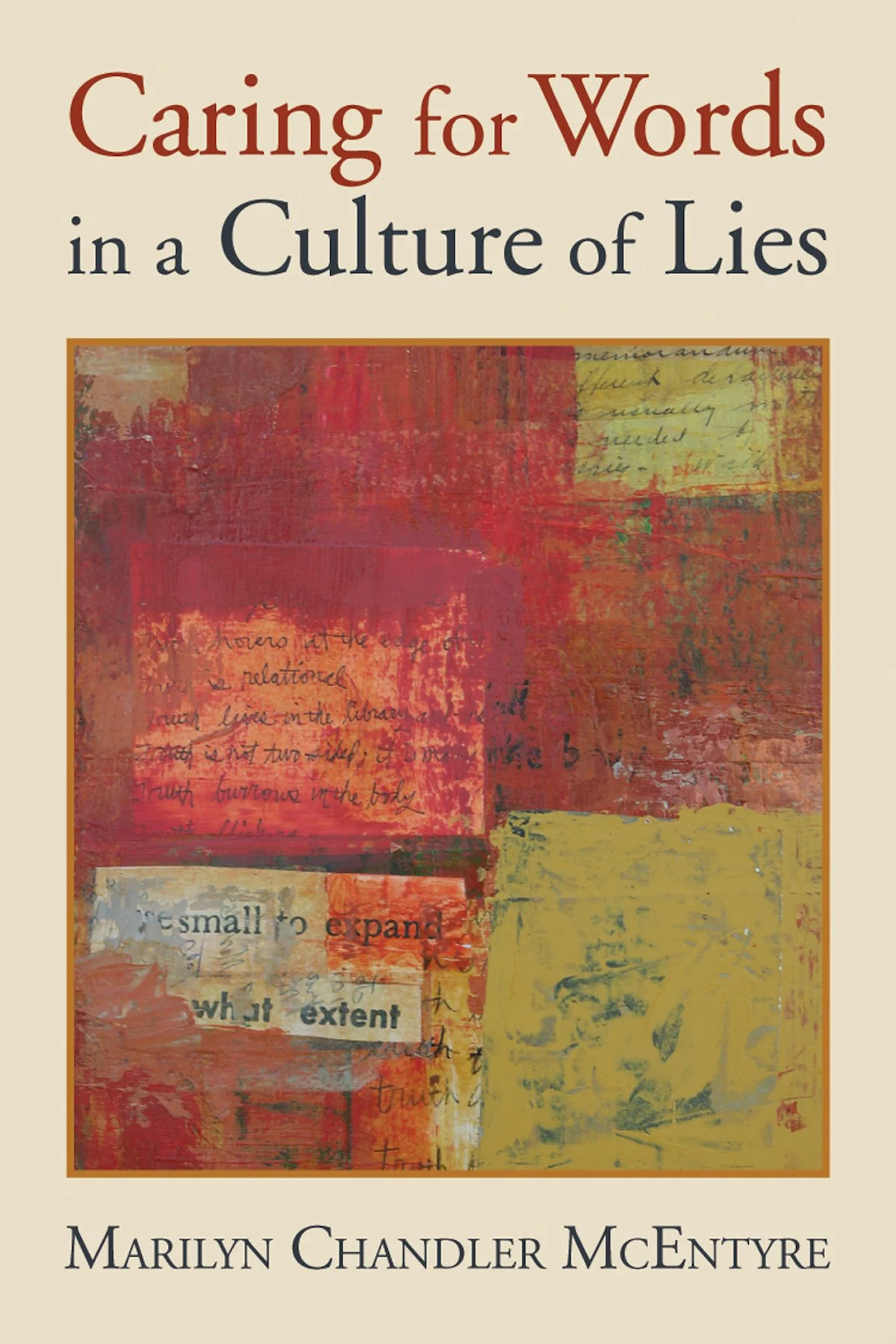Resisting Manipulation
Being an election year, it seems as good a time as any to reflect a bit on citizenship and civility. I plan to read several books along those lines between now and November, and I’ll share some thoughts along the way. One of the ones I’m most looking forward to digging into is Uncommon Decency by Richard Mouw. I’ve heard great things about it, and I wonder how it compares to Miroslav Volf’s A Public Faith, which I reflected on earlier this year. I might also re-read The Case for Civility by Os Guinness as well as unSpun by some of the folks behind FactCheck.org — an essential resource for making sense of “creative” campaign rhetoric.
In the meantime, I want to share a wonderful couple of paragraphs by Marilyn Chandler McEntyre, from her book Caring for Words in a Culture of Lies (Eerdmans). It’s not a book about politics, per se, but it’s packed full of lessons that would serve us well in our political engagement for sure. In this excerpt she introduces a series of really good questions:
Any effort to find reliable reporting needs to start not with questions about the sources but with questions about ourselves. What are my responsibilities as a citizen? As a person of faith? As a consumer? As a leader? As a parent? As an educator? What am I avoiding knowing? Why? What point of view am I protecting? Why? How have I arrived at my assumptions about what sources of information to rely on? What limits my angle of vision? Have I tried to imagine how one might arrive at a different conclusion? How much evidence do I need to be convinced? What kind of persuasion works most effectively for me? How do I accredit or challenge authority?
The answers to these questions are not simply personal. Some of them involve serious theological reflection on the relationship between the Kingdom of God and the state, what it means to give Caesar what is Caesar’s and God what is God’s, and whether and how to participate in the conduct of worldly affairs. If you’re Mennonite or Amish, that boundary is drawn pretty clearly. But most of us, I think, are navigating the murky middle ground marked out between not-so-separate church and state, trying to resist manipulation, seek truth, and act on it justly in the ways that remain open to us. (pp. 59-60)
What have you found to be helpful in discerning how to be civil in the public square while being a good steward of one’s citizenship?
